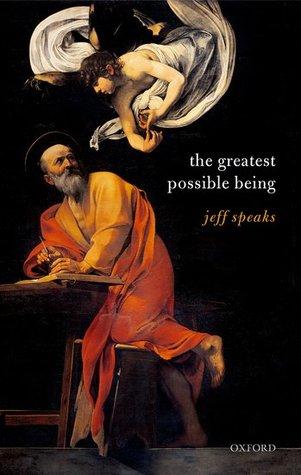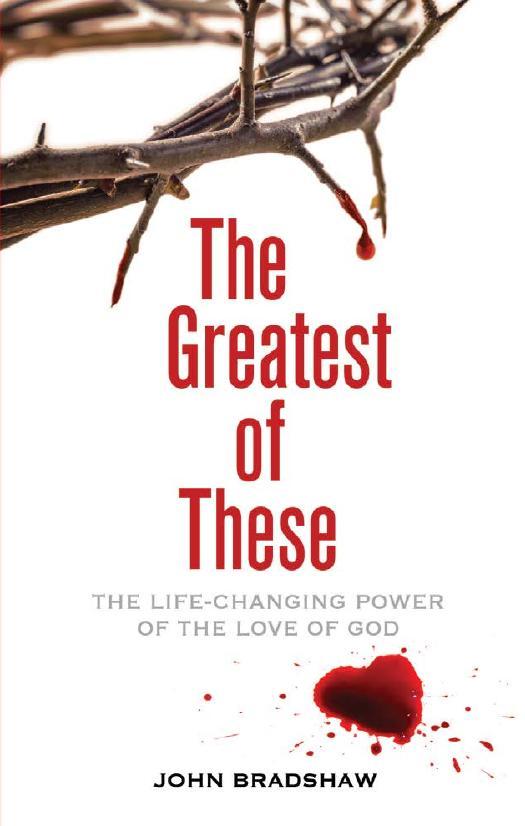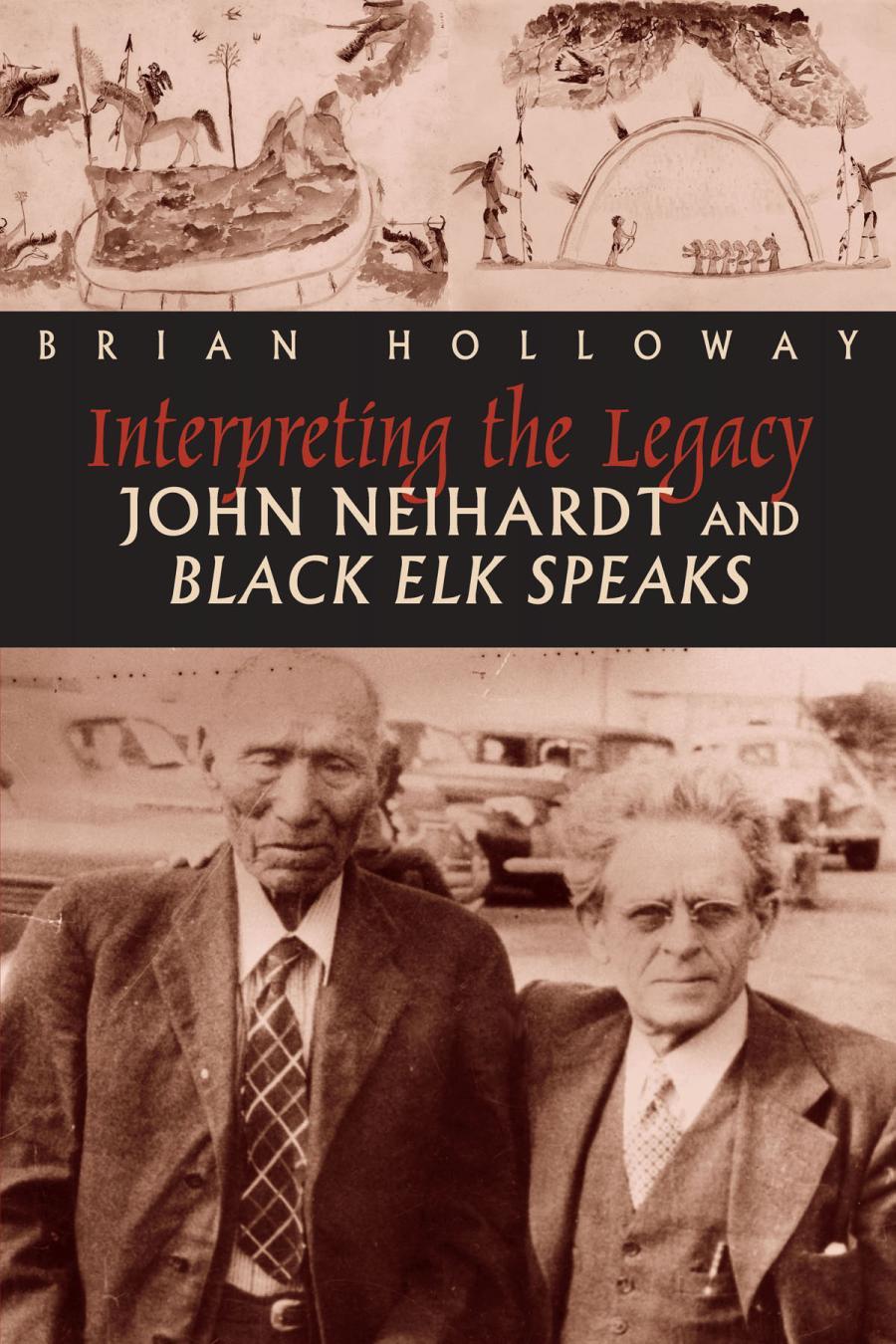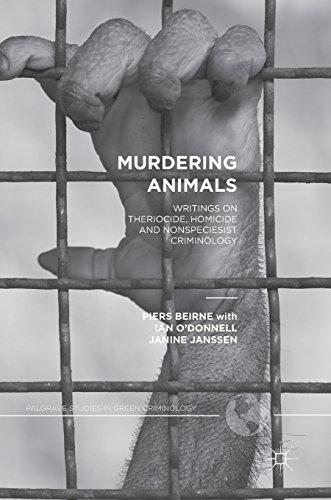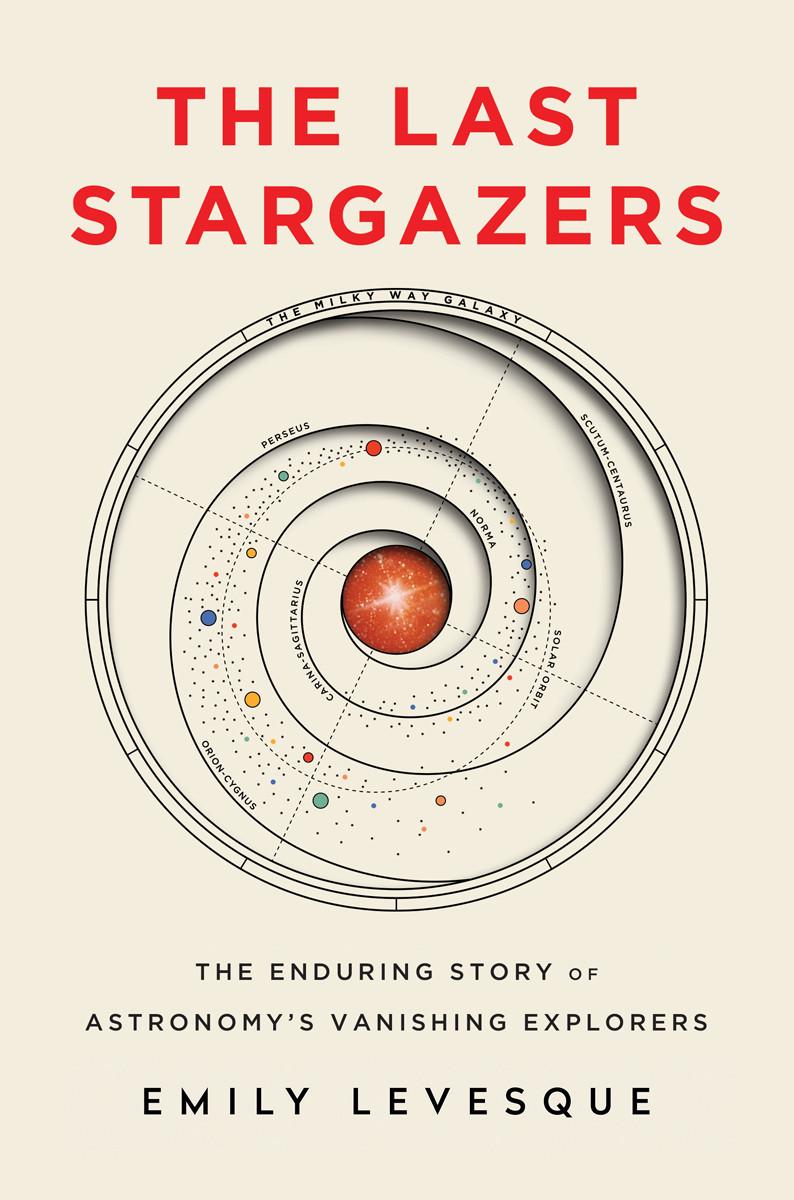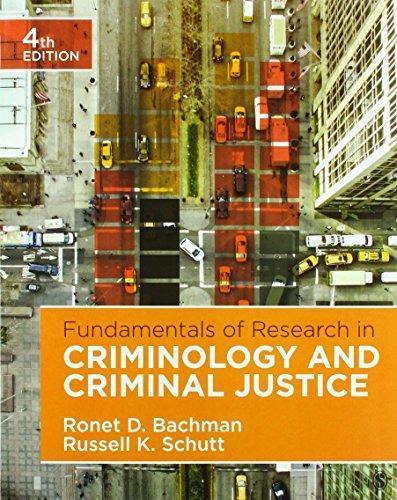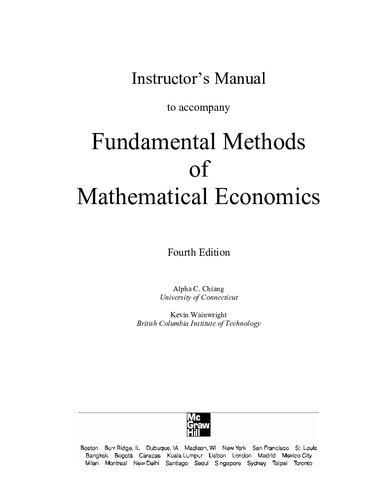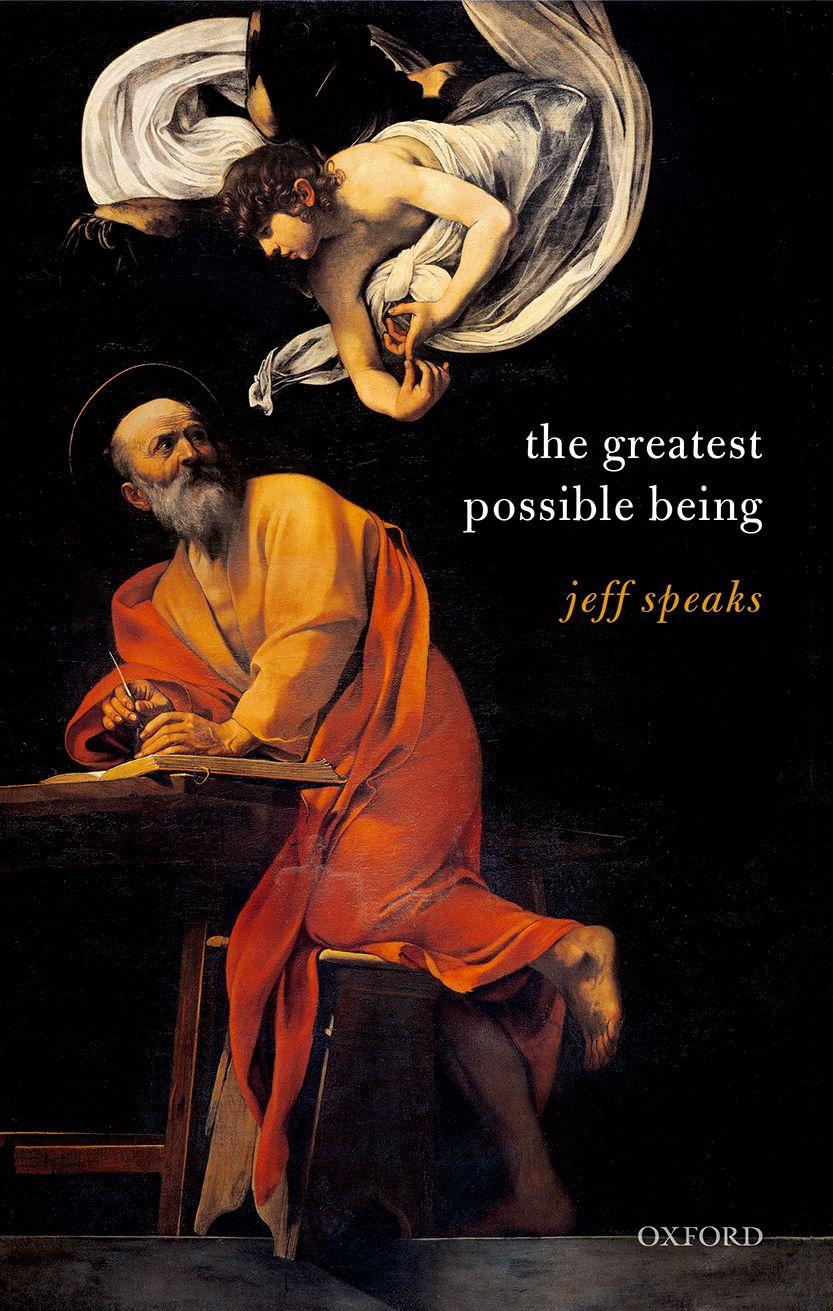https://ebookmass.com/product/the-greatest-possible-being-
Instant digital products (PDF, ePub, MOBI) ready for you
Download now and discover formats that fit your needs...
The Greatest Of These John Bradshaw
https://ebookmass.com/product/the-greatest-of-these-john-bradshaw/
ebookmass.com
Interpreting the Legacy. John Neihardt and Black Elk Speaks Brian Holloway
https://ebookmass.com/product/interpreting-the-legacy-john-neihardtand-black-elk-speaks-brian-holloway/
ebookmass.com
How to Ace Statics with Jeff Hanson Jeff Hanson
https://ebookmass.com/product/how-to-ace-statics-with-jeff-hansonjeff-hanson/
ebookmass.com
Digital Manufacturing: The Industrialization of "Art to Part" 3D Additive Printing Chandrakant D. Patel
https://ebookmass.com/product/digital-manufacturing-theindustrialization-of-art-to-part-3d-additive-printing-chandrakant-dpatel/ ebookmass.com
Murdering Animals: Writings on Theriocide, Homicide and Nonspeciesist Criminology 1st ed. 2018 Edition Piers Beirne
https://ebookmass.com/product/murdering-animals-writings-ontheriocide-homicide-and-nonspeciesist-criminology-1st-ed-2018-editionpiers-beirne/
ebookmass.com
The Last Stargazers Emily Levesque https://ebookmass.com/product/the-last-stargazers-emily-levesque/
ebookmass.com
Business Foundations: A Changing World, 13e ISE 13th Edition O. C. Ferrell https://ebookmass.com/product/business-foundations-a-changingworld-13e-ise-13th-edition-o-c-ferrell/
ebookmass.com
Fundamentals of Research in Criminology and Criminal Justice Fourth Edition
https://ebookmass.com/product/fundamentals-of-research-in-criminologyand-criminal-justice-fourth-edition/
ebookmass.com
Instructor’s Manual for Fundamental Methods of Mathematical Economics 4th Edition Alpha C. Chiang
https://ebookmass.com/product/instructors-manual-for-fundamentalmethods-of-mathematical-economics-4th-edition-alpha-c-chiang/
ebookmass.com
https://ebookmass.com/product/out-of-the-darkness-mckee/
ebookmass.com
TheGreatestPossibleBeing TheGreatest PossibleBeing JeffSpeaks GreatClarendonStreet,Oxford,OX26DP, UnitedKingdom
OxfordUniversityPressisadepartmentoftheUniversityofOxford. ItfurtherstheUniversity’sobjectiveofexcellenceinresearch,scholarship, andeducationbypublishingworldwide.Oxfordisaregisteredtrademarkof OxfordUniversityPressintheUKandincertainothercountries
©JeffSpeaks2018
Themoralrightsoftheauthorhavebeenasserted
FirstEditionpublishedin2018
Impression:1
Allrightsreserved.Nopartofthispublicationmaybereproduced,storedin aretrievalsystem,ortransmitted,inanyformorbyanymeans,withoutthe priorpermissioninwritingofOxfordUniversityPress,orasexpresslypermitted bylaw,bylicenceorundertermsagreedwiththeappropriatereprographics rightsorganization.Enquiriesconcerningreproductionoutsidethescopeofthe aboveshouldbesenttotheRightsDepartment,OxfordUniversityPress,atthe addressabove
Youmustnotcirculatethisworkinanyotherform andyoumustimposethissameconditiononanyacquirer
PublishedintheUnitedStatesofAmericabyOxfordUniversityPress 198MadisonAvenue,NewYork,NY10016,UnitedStatesofAmerica
BritishLibraryCataloguinginPublicationData
Dataavailable
LibraryofCongressControlNumber:2018939064
ISBN978–0–19–882681–1
Printedandboundby
CPIGroup(UK)Ltd,Croydon,CR04YY
ThisbookisdedicatedtoElyse,Amelia,andViolet, whomakeeverydaywonderful.
6.3Theperfectbeingdefense:adiagnosis
7.PerfectBeingSemantics
7.1Thestandardpictureofnames
7.2Threegradesofperfectbeingsemantics
7.3Whatisspecialabout‘God’?
7.3.1Theargumentfromtheabsenceofdubbings
7.3.2Theargumentfromrequirementsonreference
7.3.3Theargumentfrominformativeidentities
7.4Themodalconceptionandsemanticequivalence
7.4.1Theologicallyunsophisticatedsubjects
7.4.2Heterodoxsubjects
7.4.3Impoverishedmodalspace
7.4.4‘Thegreatestactualbeing’
7.5Themodalconceptionanddescriptiveassociation
7.6Themodalconceptionanddescriptiveintroduction
8.BeyondPerfectBeingTheology
8.1Derivingtheattributes
8.2Dispensablevs.mandatoryattributes
8.3Themeaningof‘God’
8.3.1‘God’asanordinaryname
8.3.2Therealproblemwith‘God’asanordinaryname
Introduction Inthespringof2013,ItaughtalargelectureclassatNotreDame onthetopicof‘PhilosophicalTheology.’Theorganizingideaforthe classwastoworkthroughtheNiceneCreed,consideringaswewent thebestargumentsfortheincoherenceofthecentraldoctrinesof Christianitylaidoutinthatdocument.
Manyofthetoughestquestionsthatquicklyarise—aboutevil, aboutthedoctrineoforiginalsin,aboutjudgementandtheafterlife— arebestpressedagainstthebackgroundassumptionsthatGodis omnipotent,omniscient,andperfectlymorallygood.SoIwanted somewaytogetthestudentstoseewhyclaimsofthissortabout Godwereplausible(whetherornotthestudentsthemselvesbelieved inGod).
MyideawastofollowwhatIthoughtofasatraditionallineof thought:Iwouldbeginbyintroducingthemtotheideaofagreatest possiblebeing,andthenexplainwhy,ifGodexists,itisplausiblethat Godisthegreatestpossiblebeing.Iwouldthenexplainwhy,ifthere wereagreatestpossiblebeing,itwouldbeomnipotent,omniscient, andperfectlymorallygood.
ButthatlectureturnedouttobehardertowritethanIthought. DespitewhatIthoughtwasaconsensusthattherewasasimple argumentfromtheclaimthatGodisthegreatestpossiblebeingtothe traditionalattributes,Icouldnotfigureouthowthederivationwas supposedtowork.
Fouryearslater,Istillcan’t.Thefirstfivechaptersofthisbook explainwhy.Onceonetriestomaketheargumentsuitablyprecise,
Iargue,thereisjustnowaytoderiveinterestingclaimsaboutGod fromtheprinciplethatGodisthegreatestpossiblebeing.
This(still)seemstometobeverysurprising.Theformofargument onefindsinAnselmandinmuchrecentworkinthephilosophyof religion—thatthegreatestpossiblebeingmusthaveeveryproperty whichitisbettertohavethanlack,andknowledge,power,andgoodnessareallbettertohavethanlack,andsomustallbeattributesof God—isintuitivelyextremelycompelling.IstillhavetheuneasyfeelingthatImustbemissingsomewaytomakethisintuitiveargument work.ButI’venowbeentryinglongenoughtomakeitworkthatit seemsworthwhiletopublishthecaseagainstit.
EveniftheprinciplethatGodisthegreatestpossiblebeingcannot beusedtoderivethedivineattributes,itmightstillhaveimportant theoreticalrolestoplay.Recentworkinthephilosophyofreligionhas suggestedtwo.Thefirstistheroleofsettingtheboundariesofthecore ofourconceptofGod—astellinguswhatpropertiesofGodare,so tospeak,non-negotiablewhentheorizingaboutthedivineattributes. Thesecond,relatedroleistheroleofgivingthemeaning,andfixing thereference,ofthename‘God.’InChapters6and7,Iarguethatthe claimthatGodisthegreatestpossiblebeingissimilarlyunsuitedto playthesetheoreticalroles.
Aftersevenchaptersofnegativity,inChapter8Imakesomepositive suggestionsabouthowtoanswerthequestionswhichtheclaimthat Godisthegreatestpossiblebeinghasbeenused,unsuccessfully,to answer.
ThankstotheJohnTempletonFoundation,whichfundedtheyear ofleavefromteachingduringwhichmostofthisbookwaswritten. ThanksalsotogroupsattheCenterforthePhilosophyofReligion atNotreDameandtheCenterforthePhilosophyofReligionat Rutgers,whereIpresentedearlierversionsofthismaterial.Thegroup atNotreDameevenhadtosufferthroughittwotimes.Thisbook hasbenefitedfromquestionsandcommentsfrommanypeople,but amongthosewhodeservespecialmentionareBrianCutter,Cameron DomenicoKirk-Giannini,SamNewlands,MikeRea,BlakeRoeber, andMeghanSullivan.
1 TheIdeaofaGreatest PossibleBeing OtherthanthequestionofwhetherGodexists,noquestioninthe philosophyofreligionandphilosophicaltheologyismorefundamentalthanthequestionofthedivineattributes:thequestion,toputitin ordinarylanguage,ofwhatGodislike.
Howshouldwegoaboutansweringthisquestion?Onetraditional view,whichhasreceivedasignificantrevivaloverthelasthalf-century, beginswiththeclaimthatGodisthegreatestpossiblebeing.This claimismostoftenassociatedwiththenameofSt.Anselm,whoin thesecondchapterofthe Proslogion describesGodas‘abeingthan whichnothinggreatercanbeconceived.’Butthiswas,asothershave noted,notanentirelynovelclaim.
IntheChristiantradition,Anselmwasnotablyprecededby Boethius,whoasked
ForsincenothingcanbeimaginedbetterthanGod,howcanwedoubtHim tobegoodthanwhomthereisnothingbetter?1
whichapparentlypresupposesthatGodissomethingthanwhichno greatercanbeimagined.AndAugustinewrotethefollowingabout ourconceptofGod:
ForwhentheonesupremeGodofgodsisthoughtof,evenbythosewho believethatthereareothergods,andwhocallthembythatname,and worshipthemasgods,theirthoughttakestheformofanendeavortoreach
1 Boethius, ConsolationofPhilosophy,X.
theconceptionofanature,thanwhichnothingmoreexcellentormore exaltedexists.2
Augustine’sclaimhereisnotquiteasstrongastheclaimwefind, implicitlyinBoethiusandexplicitlyinAnselm.WhereasAnselm claims
Godisthegreatestconceivablebeing.
Augustineclaimsonlythat3
Godisthegreatestbeing.
Thereislogicalspacetobelievethesecondofthesebutnotthefirst— thoughthisspaceofcoursevanishesifonebelieves,asAnselmdid, thatthegreatestconceivablebeingactuallyexists.
Bothoftheseclaimscanbedistinguishedfromaclaimwhichone principallyfindslaterinthetraditionthanAnselm,namely
Godisthegreatestpossiblebeing.
Whilefromourvantagepointitisnaturaltosharplydistinguishthis modalclaimfromthecorrespondingclaimaboutconceivability,it wouldatleastarguablybeamistaketoreadthisdistinctionintothe workofearlierthinkers.Tomyknowledge,nooneuntilthemodern periodexplicitlydistinguishesbetweentheclaimthatGodisthe greatestconceivableandthegreatestpossiblebeing;theclaimis invariablystatedinbroadlypsychologicalterms,astheclaimthatGod isthegreatestthinkable,orimaginable,orconceivablebeing.Butthat hardlyimpliesapreferenceforthepsychologicalformulationoverthe modalone,giventhatitisalsoquiteraretofindanyexplicitdistinction betweentheconceivableandthepossiblebeforeDescartes.4
2 OnChristianDoctrine,I.7.
3 ThoughotherpassagesinAugustinesuggestthestrongerclaim,e.g.‘Forno souleverhasbeen,oreverwillbe,abletoconceiveofanythingbetterthanyou ... ’ (Confessions VII.4).
4 TheearliestsuchdiscussionIknowofrelatestoDescartes’claimin Meditation VIthat‘ifIhaveavividandclearthoughtofsomething,Godcouldhavecreatedit inawaythatexactlycorrespondstomythought.’Criticismofthisclaim,especially
Evenifweshouldnotreadapreferenceforpsychologicalover modalformulationsintopastthinkers,wenowclearlydohave theresourcestodistinguishtheclaimsthatGodisthegreatest possibleandthegreatestconceivablebeing,andinwhatfollows itwillbeimportanttokeepthemseparate.Ifpossibilityimplies conceivabilitybutnotthereverse,andtheactualityimpliespossibility butnotthereverse,thesethreethesescanbeorderedfromlogically strongesttoweakestasfollows:Godisthegreatestconceivablebeing, Godisthegreatestpossiblebeing,andGodisthegreatestbeing.5
1.1Fromgreatnesstothedivineattributes Almostasoldasourtrioofclaimsistheattempttoderivefromthese claimsmorespecificclaimsabouttheattributesofGod.Anselm,asis wellknown,usedtheclaimthatGodisthegreatestconceivablebeing to,viatheontologicalargument,derivetheconclusionthatGodhas thepropertyofexistence.Buthealsousedittoshow,amongother things,thatGodis‘just,truthful,blessed,andwhateveritisbetterto bethannottobe.’6
JustastheideaofGodasthegreatestconceivable(orpossibleor actual)beingpre-datesAnselm,sodoestheideaofusingthisconceptionofGodtoderivemorespecificclaimsaboutGod.7 Platohas
fromArnauld,canatleastbereadascenteringonthelinkbetweenconceivability—the vividandclearthought—andpossibility.Seehis‘FourthObjections,’inCottingham etal.(1988),volII,140.BythetimewegettoHume,thedistinctionisquiteexplicit— evenifHumethinksthat‘whateverthemindclearlyconceives,includestheideaof possibleexistence,orinotherwords,thatnothingweimagineisabsolutelyimpossible’ (Treatise,I.II.ii),andhencethattheconceivableandthepossiblearecoextensive.See, forinterestingdiscussion,Yablo(1993).
5 Ofcourse,thereare,notoriously,manydifferentsensesof‘conceivable,’andfor manyoftheseitwouldbeincorrecttosaythatpossibilityentailsconceivability.There are,forexample,presumablymanypossiblescenarioswhichlimitedcreatureslikeus cannotimagine.Forothersensesof‘conceivable,’theentailmentwillplausiblyhold. Thekeypointfornowissimplythattherearegoodsensesof‘conceivable’onwhich someclaimsareconceivablebutnotpossible,andthisfactisonewhichtheproponent ofthethesisthatGodisthegreatestconceivablebeingmightexploit.
6 Proslogion §V. 7 Forusefuldiscussion,seeLeftow(2011).
Socratesreasonfromtheclaimthatthegodsarethegreatestpossible beingstotheclaimthattheyareimmutable:
ThenitisimpossiblethatGodshouldeverbewillingtochange;being, asissupposed,thefairestandbestthatisconceivable,everygodremains absolutelyandforeverinhisownform.8
AndCicero,followingZeno,reasonsfromtheclaimthattheuniverse isthegreatestactualbeingtotheclaimthattheuniversepossesses everypropertywhichitisbettertohavethanlack:
Thesearguments,forinstance,whichareexpandedbymodernStoics,usedto becompressedbyZenoasfollows:‘Thatwhichexercisesreasonismoreexcellentthanthatwhichdoesnotexercisereason;thereisnothingmoreexcellent thantheuniverse,thereforetheuniverseexercisesreason.’Inthesamewayit maybeprovedthattheuniverseiswise,blessed,andeternal,forallobjects thatpossessthesequalitiesaremoreexcellentthanthosewhichdonotpossess them,andthereisnothingofgreaterexcellencethantheuniverse.Bythis meansitwillbeprovedthattheuniverseisdivine.9
Theformofargumentisasimplebutpowerfulone:Godisthegreatest being;itisbettertobe F thannot-F ;so,Godmustbe F
Themainstreamofcontemporaryphilosophyofreligionissquarely withinthisvenerabletradition.Philosophyjournalsforthelasthalf centuryhaveseenmanyattemptstosettleuponalistofthedivine attributes,andtogivemorespecificaccountsofthetraditionalcandidates:omnipotence,omniscience,goodness,eternity,andsoon.Itis unsurprising,giventhenatureofphilosophy,thatthisdiscussionhas notyieldedmuchconsensus.Itis,however,quitesurprisingthatsuch ageneralconsensushasemergedthatthewayofansweringquestions abouttheattributesexemplifiedbythepassagesjustlistedisbasically correct.
Here,topickjustoneamongmanypossibleexamplesfromthis literature,isThomasMorris:
fromgreatnesstothedivineattributes
[W]ecanrepresentschematicallythedevelopmentofaconceptionofa perfectbeing Inascendingorderofgreatnessinmetaphysicalstature,God isconceivedofas:
(1)conscious(amindedbeingcapableofthoughtandawareness)
(2)aconsciousagent(capableoffreeaction)
(3)athoroughlybenevolentconsciousagent
(4)athoroughlybenevolentconsciousagentwithsignificantknowledge
(5)athoroughlybenevolentconsciousagentwithsignificantknowledge andpower
(6)athoroughlybenevolentconsciousagentwithunlimitedknowledge andpowerwhoisthecreativesourceofallelse
(7)athoroughlybenevolent,necessarilyexistentconsciousagentwith unlimitedknowledgeandpowerwhoistheontologicallyindependent creativesourceofallelse.
Andherewehavearrivedatwhat,withitsentailments,isthehighest conceptionofall,theconceptionofagreatestpossibleormaximallyperfect being.10
Themethodondisplayhere—ofderivingclaimsaboutGodfrom theclaimthatGodisthegreatest,orgreatestpossible,orgreatest conceivable,being—isoftencalled‘perfectbeingtheology.’Theidea isnicelysummedupbyMurrayandRea,whosaythattheprinciple thatGodisthegreatestpossiblebeing‘provide[s]uswitharuleor recipefordevelopingamorespecificconceptionofGod.’11
Tome,derivationsoftheattributesliketheonejustquotedhave alwaysseemedtohaveaslightlymagicalfeel—asthoughatheological rabbitisbeingpulledoutofamodalhat.Ifperfectbeingtheologyisa recipe,andperfectbeingtheologiansthechefs,then,likemanygreat chefs,itseemstomethatperfectbeingtheologianshaveoccasionally beenlessforthcomingabouttheingredients,andexactlyhowtheyare supposedtogotogether,thantheycouldhavebeen.Oneofthemain
10 Morris(1987),26.
11 MurrayandRea(2008),8.Morris(1991)usesthesameculinarymetaphor,saying that[GPB]is‘likethemainelementinarecipeforcookingupourideaofGodin detail’(35).
thingsthatIwanttodointhechaptersthatfollowistotrytolayout themethodofperfectbeingtheology—or,rather,arangeofchoices forhowtothinkaboutthatmethod—inmoredetailthanhasbeen donethusfar.
1.2ThemodalconceptionofGod Eveniftherearesomeunansweredquestionsabouthowexactlyto understandthemethodofperfectbeingtheology,thereisnomystery aboutwhythatmethodhasseemedtobesoattractivetosomany philosophersandtheologians.Onecrucialquestionis—takingfor grantedthatGodexists—howmuchwecanknowaboutGodbythe useofreasonalone,withoutrelianceonrevelationortheassumptions ofindividualreligioustraditions.Anditmightwellseemthatthe methodofperfectbeingtheologypromisesanoptimisticresponseto thisquestion.
Inordertogetstartedontheprojectofderivingbyreasonalone theattributesofGod,weneedastartingpoint—someassumption aboutGodwhich,independentlyofrevelationandtradition,wecan seetobetrue.AndtheclaimsthatGodisthegreatestactual,orgreatestpossible,orgreatestconceivable,beingmightseemtoprovide justthewantedstartingpoint.Let’scallthisthe modal conceptionof God—theconceptionofGodasthebestthinginsomespaceofworlds (whichmightincludejusttheactualworld,justthepossibleworlds, oralsoconceivablebutperhapsimpossibleworlds).
ThemodalconceptionofGodisanattractiveoneforrational theologybecauseitcombinestwofeatureswhicharebothdifficultto combineandessentialtotheprojectofrationaltheology.Thefirstfeatureisakindof neutrality.TheclaimthatGodisthegreatestpossible beingdoesnotinitselfsayanythingveryspecificaboutGod—and thisfactispartofwhatmakesitanattractivestartingpoint.Itdoes notinitselfsaythatGodispowerful,orloving,orimmutable—and henceisaclaimwhichmight,inprinciple,beendorsedbysomeone whetherornottheyfindthoseclaimsaboutGodinitiallyplausible.
ItisnothardtoimaginepeoplewithradicallydifferentviewsofGod findingcommongroundintheclaimthatGodisthegreatestpossible being.
Indeed,onmanyviewssomethingstrongercanbesaid.Thisis becausemanytake‘God’tobeakindofdescriptivename:aname whichiseithersynonymouswithadefinitedescription,orincorporatessignificantdescriptiveelements.Andanumberoftheoristshave thoughtthattherelevantdescriptionissomethinglike‘thegreatest possiblebeing.’12 Ifaviewlikethiswerecorrect,thenthemodal conceptionofGodsimplygivesthecontentof‘God.’Thiswouldmake theclaimthatGodisthegreatestpossiblebeingnotjustplausible,but literallyanalytic,sincethenitwouldbepossibletotransformitintoa logicaltruthjustbysubstitutingsynonymsforsynonyms.13
Thesecondfeatureisakindof productivity.Despiteitsneutrality, perfectbeingtheologians,followingAnselmandothers,thinkthat theformulathatGodisthegreatestpossiblebeingcanbeshown toentailvariousmorespecificclaimsaboutGod.Andthisis,aswe haveseen,aquiteplausibleclaim.Itcertainlyseemsasthoughwecan seethatsomepropertiesarebettertohavethanlack,anditcertainly seemsasthoughthesewouldhavetobepropertiesofthegreatest possiblebeing.Anditisdifficult,Ithink,tocomeupwithanother startingpointfortheologicalspeculationwhichwouldbettercombine neutralityandproductivity.
Itis,however,important,todistinguishfromtheoutsetthemodal conceptionofGodfrommoresubstantiveconceptionsofGodwith whichitcanbeconflated.Consider,forexample,Leibniz’sconception ofGodasthe ensperfectissimum,whereaperfectionis‘everysimple qualitythatispositiveandabsolute,orthatexpresseswithoutany
12 Idiscussthissortofviewof‘God’atlengthinChapter7.
13 HereIignoreforsimplicitythefactthatsentencesratherthanpropositionsare theprimarybearerofanalyticity,andthatthebestcandidateforananalytictruthinthe vicinitywouldreallybetheconditional‘IfGodexists,thenGodisthegreatestpossible being.’I’llreturntotheseissueswhenweturntothesemanticsof‘God,’inChapter7.
theideaofagreatestpossiblebeing limitswhateveritexpresses.’14 TheviewofGodashavingallperfections,inthissense,isnotthemodalconceptionofGod.Ifonestarts withtheviewthatGodhasallperfections,then,tofigureoutwhich arethedivineattributes,onehastofigureoutwhicharethepositive simplequalities.TheprinciplethatGodisthegreatestpossible(or conceivable)beinghasnoobviousroletoplayinthisinquiry.
Ofcourse,onemighttrytoderivetheclaimthatGodhasall perfectionsfromtheclaimthatGodisthegreatestpossiblebeing; onemighttrytoderive,thatis,Leibniz’sviewthatGodisthe ens perfectissimum fromthemodalconceptionofGod.Thatwouldbeto goinforakindofperfectbeingtheology.But,whilehisnameisoften associatedwiththethesisthatGodisthegreatestpossiblebeing,that strategywasclearlynotLeibniz’s.Ifitwere,hewouldnothavebeen soconcernedtoargueforthethesisthatitispossiblethatthesubject ofallperfectionsexist.Ifwederivedourlistofperfectionsfromthe conceptofagreatestpossiblebeing,thenthecompossibilityofthe perfectionswouldbetrivial.
Thisisnot,ofcourse,todenythatLeibnizendorsedthethesisthat Godisthegreatestpossiblebeing.Nodoubthedid.Butonecan endorsethisthesiswithoutgivingittheroleinthedeterminationof thedivineattributeswhichitplaysinperfectbeingtheology.
1.3Twostepstoaperfectbeingtheology
HowdowemovefromthemodalconceptionofGodtoaviewofthe divineattributes?
Perfectbeingtheologyisaprocedurewhichaimstogiveusa principledwayofmakingprogressonthequestionofwhetheragiven property F is,orisnot,amongthedivineattributes.Henceitmustgive ussomewayofcompletingthebiconditional
F isadivineattributeiff ...
14 Leibniz(1969),167,citedinAdams(1994),142.
inawaywhichissuchthatinstancesoftheright-handsideofthe biconditionalareeasiertoevaluatethaninstancesoftheright-hand sideoftheuncontroversialbutunhelpful
F isadivineattributeiff F isapropertyofGod.
Itisnothardtogetsomehandleonhowthisshouldwork.Afirststep istopickasastartingpointoneofourthreeprinciplesaboutGod:
Godisthegreatestactualbeing.
Godisthegreatestpossiblebeing.
Godisthegreatestconceivablebeing.
Let’scallthisfirstchoicepointthechoiceofa modalprinciple. Thesethreemodalprincipleswilltriviallyentail,respectively,
F isadivineattributeiff F isapropertyofthegreatestactualbeing.
F isadivineattributeiff F isapropertyofthegreatestpossiblebeing.
F isadivineattributeiff F isapropertyofthegreatestconceivable being.
Ourquestionaboutthemethodofperfectbeingtheologythusreducestothequestion:howdowetellwhethersomethingisaproperty ofthegreatestactual,possible,orconceivablebeing?
Theanswertothisquestionis,Ithink,fairlystraightforward.What theperfectbeingtheologianneedsisaconditiononpropertieswhich issuchthataproperty’ssatisfyingthatcondition,togetherwiththe relevantmodalprinciple,entailsthatGodhasthatproperty.This conditionwillmakeprecisethethoughtthatthepropertyisonewhich itisbettertohavethanlack.Let’scallaconditionofthissorta greatness condition.
Apureversionofperfectbeingtheologywillconsistofoneofthe abovemodalprinciples,togetherwithagreatnesscondition.Though theterminologyisnovel,thebasicideahereseemstofitwellwiththe waythatthemethodofperfectbeingtheologyisoftencharacterized byitsproponents.Theideaisthatwebeginwithaclaimaboutthe greatnessofGod,pointoutthatacertainpropertyis(inasensetobe madeprecise)bettertohavethanlack,andconcludethatGodhasthat property.
Itshouldbeuncontroversial,Ithink,thatourgreatnesscondition mustsatisfythefollowingtwodesiderata:
[Entailment]:itshouldfollowfromthefactthataproperty F satisfiesthecondition,plustherelevantmodal principle,that F isapropertyofGod.
[Informativeness]:itshouldbepossible(withoutrelianceonprior substantiveclaimsaboutGod)toseethatsome interestingcandidatestobedivineattributes satisfythecondition.
Ifagreatnessconditiondidnotsatisfy[Entailment],itwouldnot bedoingthejobforwhichitwasintroduced,sincethenthefact thatapropertysatisfiedtheconditionwouldnottellusanything aboutthedivineattributes.Ifagreatnessconditiondidnotsatisfy [Informativeness],itwouldneverdeliveraninterestingresult,and henceagainwouldnottellusanythingofinterestaboutthedivine attributes.(Obviously,satisfactionofthisseconddesideratumwillbe amatterofdegree.)
Itisfairlyobviousthatone’schoiceofagreatnessconditionwill dependonone’schoiceofamodalprinciple,since,forexample,the factthatapropertymeetssomeconditionmightentailthatitwould beapropertyofthegreatestactualbeing,butnotthatitwouldbea propertyofthegreatestpossiblebeing.
Ifwethinkofaparticularinstanceofperfectbeingtheologyasconsistingofamodalprincipleandagreatnesscondition,then,twoways inwhichthatinstancecanfailarebyitsgreatnessconditionfailingto meet[Entailment]or[Informativeness].Butthereisofcourseanother wayinwhichitcanfail:itsmodalprinciplecanbefalse.Onewayto showthatamodalprincipleisfalseistoprovideagreatnesscondition whichmeetsboth[Entailment]and[Informativeness],butisalso satisfiedbypropertieswhicharenotplausiblecandidatestobeamong thedivineattributes.Aswe’llseebelow,ourmodalprinciplesarenot asbeyondchallengeastheyaresometimestakentobe.
Insettingthingsupinthisway,it’simportantnottosaddlethe perfectbeingtheologianwithacommitmentsheneednottakeon.
Advocatesofperfectbeingtheologytypicallydonotthinkthatthey haveinhand,asMorrisputsit,a‘fullymechanicalprocedure’15 forderivingthedivineattributes—aprocedurewhich,withoutany furtherphilosophicalassumptions,willprovideustheanswerwe want.Thisdoesnotmeanthatthereissomethingwrongwithaskingforapreciseformulationofthemethod.Butitdoesmeanthat weshouldnotdemandthatourgreatnessconditionbesuchthat weshouldexpecttobeabletodeterminewhatfallsunderitwithout employingnon-trivialphilosophicalassumptionsabouttherelative greatnessofvariousactualandpossiblebeings,aswellasassumptions aboutwhatisandisnotpossible.Ofcourse,ifthoseassumptions aretriviallyequivalenttotheclaimsaboutGodtobearguedfor— which,aswewillsee,issometimesthecase—thiswillbegenuinely problematic.
1.4Modalprinciples Inwhatfollowsitwillbeimportanttobeclearaboutexactlywhen aproperty’ssatisfyingagreatnesscondition,togetherwithamodal principle,entailssomethingaboutGod.Soitwillbeusefultointroducesomenotationsothattherelevantclaimscanbestatedasclearly aspossible.
Togiveusasenseofhowtherelevantclaimsshouldlook,there’sno betterplacetostartthan§Vofthe Proslogion: Whatareyou,then,LordGod,thanwhomnothinggreatercanbeconceived? Butwhatareyou,exceptthatwhich,asthehighestofallbeings,aloneexists throughitself,andcreatesallotherthingsfromnothing?For,whateverisnot thisislessthanathingwhichcanbeconceivedof. ... Whatgood,therefore, doesthesupremeGoodlack,throughwhicheverygoodis?Therefore,you arejust,truthful,blessed,andwhateveritisbettertobethannottobe.Forit isbettertobejustthannotjust;bettertobeblessedthannotblessed.
Anselm’slineofthoughtbringsouttwoimportantpoints.Thefirstis thatwhenAnselmandotherstalkaboutpropertieswhichitisbetter 15 Morris(1991),41.
theideaofagreatestpossiblebeing
tohavethantolack,what‘betterthan’expressesisinthefirstinstance arelationbetweenindividualsratherthanbetweenproperties.When wesaythatitisbettertohavethanlack F ,whatwearesayingisthatthe thingswhichare F are(ingeneral,orallthingsbeingequal)betterthan thethingsthatarenot-F .Itisnottheabstractobject,thepropertyof justice,whichispraiseworthy;itistheindividualswhichpossessthis property.(ThisispresumablywhyAnselmsays‘itisbetter tobe just thannotjust.’)InwhatfollowsIwilluse‘>’toexpressthisrelationof beinggreaterthanbetweenindividuals.
ThesecondpointisrequiredbythefactthatAnselmrelies,not justontheclaimthatGodisthegreatestbeing,butalsoonthe claimthatGodisthegreatestconceivablebeing.Andwhenweask whichindividualsaregreaterthanwhichotherindividuals,wewill sometimeswishtocomparethegreatnessofanactualindividual withthegreatnesswhichsomeindividualcouldhavehad,orcanbe imaginedtohave,butdoesnotactuallypossess.
Iwillfollowcontemporaryorthodoxyinusingtheapparatusof possibleworldstorepresentclaimsofthissort.So,forexample,the claimthatsomeonecouldhavebeengreaterthantheyactuallyarewill berepresentedastheclaimthatthereissomepossibleworldinwhich thatindividualisgreaterthanthatindividualisintheactualworld. WhileIwillasmuchaspossibleremainneutralonmetaphysical questionsaboutthenatureofpossibleworlds,oneusefulwayto thinkofpossibleworldsisascertainsortsofpropertieswhichthe universecouldhave,butdoesnot,instantiate.Onthisconstrual,the ideathattherearepossibleworlds—propertiesthattheuniversecould havehad,butdoesn’t—isjustaspecialcaseofthefactthatthereare propertieswhichthingscouldhavehad,butinfactlack.
Sowhenwearestatingclaimsabouttherelativegreatnessofcertain individuals,itisbesttothinkoftheseascomparingtherelative greatnessofcertainindividual/worldpairs.InwhatfollowsIwilluse xw tomean x inworld w
Asisstandard,Iwilluse‘α ’torepresenttheactualworld.So xα willmean x intheactualworld and xw > yw∗
expressesthetransworldcomparativeclaimthat x is,in w,greaterthan y isin w∗ . 16
Theseworld-indicatingsubscriptsarerequiredtomakesenseof reasoningfromtheclaimthatGodisthegreatestpossible,aswellas thegreatestactual,being.Butanadditionalcomplicationisrequired tomarkthedistinctionbetweentheclaimthatGodisthegreatest possibleandthegreatestconceivablebeing.
Aswe’llseeinChapter3,therearemanydifferentsensesinwhich abeingmightbesaidtobeconceivable.But,asafirstpass,wecansay thatabeingisconceivableiffitisconceivable,orimaginable,thatthat beingexists,andthataclaimisconceivableifitcanbeconceived,or imagined,tobetrue.Justastheapparatusofpossibleworldsisuseful tomodelclaimsaboutthegreatnessofbeingswhichcouldhavebut donotexist,sowecanintroduceconceivableworldstomodelclaims aboutthegreatnessofbeingswhichcanbeimaginedtoexist,butin factdonot.Justaspossibleworldsmaybethoughtofasproperties whichtheuniversecouldhavehadbutlacks,conceivableworldsmay bethoughtofaspropertieswhichtheuniversecouldbeimaginedto have,butinfactlacks.
Itisnowwidelyheldthatsomeclaimsareconceivable—canbe,in somesense,imaginedorconceivedtobetrue—butarenotgenuinely possible.Ifthisiscorrect,thentherearesomeconceivableworlds
16 HereandinwhatfollowsIwillwriteasthough > isastricttotalorderon actualandpossiblethings.Thatisnotamandatoryassumptionfortheperfectbeing theologian;shecouldholdthatsomethingsareincommensurable.Isetthispossibility asideforsimplicity;nothingintheargumentstofollowhangsonit.
theideaofagreatestpossiblebeing
whicharenotpossibleworlds.Iwillbeassumingthatthisiscorrect. Thepointofthisassumptionatthisstageistogivetheperfectbeing theologianmaximumflexibility.Forifthepossibleworldsjustarethe conceivableworlds,thentheclaimsthatGodisthegreatestpossible beingandthatGodisthegreatestconceivablebeingareequivalent. Atthisstagewewanttoleaveopenthepossibilitythatthedistinction betweenpossibilityandconceivabilitymightdosomegenuinework inhelpingustoderivethepropertiesofGod.Muchaswerepresented possibleworldswith‘w’subscripts,wecanrepresentconceivable worldswith‘c’subscripts.
Thisgivesustheresourcestoformulateourthreemodalprinciples, perspicuouslyifanachronistically,as
[Gα B][∀x: x = God](Godα > xα )
[GPB][∀x: x = God] ∀w ∈ W (Godα > xw )
[GCB][∀x: x = God] ∀c ∈ C (Godα > xc )
where W isthesetofallpossibleworldsand C isthesetofall conceivableworlds.Eachprincipleentailstheclaimsaboveit,given thatallpossibleworldsareconceivable—andhencethat W ⊆ C—and thattheactualworldispossible—andhencethat α ∈ W . 17
Itisworthnotingthateachofthesemodalprinciplesimmediately impliesthatGodexists,sinceeachattributesarelationalproperty toGod.Thismakestheseformulationshighlyunsuitableforsome usestowhichtheclaimthatGodisthegreatest(actual,possible,or conceivable)beingissometimesput.Animportantexampleisthecase ofdebatesbetweentheistsandatheistsabouttheexistenceofGod, inwhichtheprinciplethatGodisthegreatestpossiblebeingmight functionasakindofregulativeprinciple,onewhichisusedtodefine thetypeofbeingwhoseexistenceisindispute.18 Inthesecontexts,the
17 Inwhatfollows,I’lloftensimplifytheformalnotationbyomittingthequantificationoverworlds—unboundsubscriptsshouldalwaysbeunderstoodasboundby universalquantifierswithwidescope.HereandinwhatfollowsIsetasideanyscruples aboutpossibilistquantification,andsimplyhelpmyselftoit.Whilethisissomething towhichonemightreasonablyobjectinothercontexts,hereitisagifttotheperfect beingtheologian.Iftherelevantclaimscannotbereformulatedwithoutlossinamore ontologicallyconservativeway,thenthiswouldbeafurtherproblemfortheproject.
18 Foranextendeduseofthisstrategy,seevanInwagen(2006).
claimthatGodisthegreatestpossiblebeingisbetterformulatedasa biconditionalthanaspredicatingsomethingofGod.I’llreturntothis topicinChapter6below.Butasinthenextfewchaptersourfocus willbeontheattempttoderivethepropertiesofGod,whiletaking theexistenceofGodforgranted,itwillbesimplertostickwiththe formulationsabove.
Iwill,forobviousreasons,callperfectbeingtheologiesbasedon [Gα B]or[GPB] alethic perfectbeingtheologies,andthosebased on[GCB] epistemic perfectbeingtheologies.
1.5Greatnessconditions Thisnotationalsogivesustheresourcestoformulategreatnessconditions.Greatnessconditionsareconditionswhichpropertiescan satisfyornot,anditissimplesttoformulatethemasschematawhich involveasinglepredicateletter.Consider,forexample,thecondition apropertysatisfiesiff,necessarily,everythingwhichhastheproperty isgreaterthaneverythingwhichlacksit.Thatcanbeexpressedusing theschema:
∀x∀y ((Fxw & ¬Fyw∗ ) → xw > yw∗ )
Apropertymeetsthisconditionjustincasereplacing‘F ’witha predicateexpressingthatpropertyresultsinatrueformula.
Beforegoinganyfurther,it’sworthconsideringanimportantobjectiontothewaythatIhavesetthingsup.Advocatesofdivinesimplicity maybeinclinedtoobjecttothewaythatIsuggestformulating greatnessconditions,onthegroundsthattalkofthepropertiesofGod issomehowmisconceived—howeverweunderstanddivineattribute talk,accordingtothissortofview,itshouldn’tbeunderstoodin anywaymetaphysicallyseriousenoughtoentailGod’smetaphysical complexity.19
Thisworryisfairenough.Butitseemstomethatitisbasically orthogonaltothesortofprojectunderdiscussion.Forevenadvocates
19 ThankstoMikeReaforpointingthisout.

